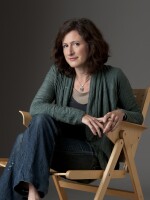In a cheerful rehearsal room at Temple University, a few dozen professional musicians inspect the instruments that they'll be playing to debut an audacious piece of music by a Pulitzer Prize-winning composer.
The composition is called "Symphony For a Broken Orchestra" and, fittingly, these instruments are all broken.
Over 1,000 damaged instruments are languishing in what are known as "instrument graveyards" in Philadelphia's public school system, which lacks the funds to fix them. This weekend, 400 of these instruments will be played in performance by musicians ranging from members of the Philadelphia Orchestra to public school children. The goal is to get those broken instruments repaired and back to kids.
"Oh man, this thing is so beat up," says jazz musician Brent White, as he tries out scales on a battered trombone which is missing a slide. White has toured with the Sun Ra Arkestra and other top-tier groups, but he first learned to play music in Philadelphia's public schools.
"I remember some of the broken instruments I had to play in elementary school and middle school," White says. "It's coming full circle now."
The room bursts into applause as the composer of the symphony, David Lang, makes his entrance. Lang won a Pulitzer in 2008 for his composition "The Little Match Girl Passion" and he is a co-founder of the acclaimed avant-garde collective Bang on a Can. Lang was invited to compose "Symphony for a Broken Orchestra" the same day he learned of his Academy Award nomination for Best Original Song for Paolo Sorrentino's film Youth.
This symphony is less glitzy, for sure, but Lang agreed to the project immediately.
"I really thought of this whole thing as a kind of healing exercise," Lang says. "And from the very beginning, I made everyone here refer to these instruments as 'wounded' instruments."

Cracked cellos. Vandalized violins. Flutes that gasp and leak. Horns with broken valves. Lang worked with musicians from the group Found Sound Nation to catalog about 1,500 instruments, searching for ones that were wounded in exactly the right way.
"I am trying to make the brokenness kind of the foreground," he says. "I don't want to avoid the things that are broken. I don't want to make these instruments sound like we don't notice how changed they are. And so I tried to ask for things that would highlight the fact that they are changed."
Because the instruments are so difficult to play, musicians have to play in any way they can. Lang's score demands creativity from musicians whose instruments are unable to play the required notes.
"It may take them several tries to find a way to get their instruments to deliver that note," Lang explains. "And all of those tries and all of those attempts that we hear through the ensemble is what makes this piece work."
Non-musician Robert Blackson came up with the idea for Symphony For a Broken Orchestra. Blackson, who runs the Contemporary Museum at Temple University's Tyler School of Art, had never done a musical project before. But a few years ago, he visited a Philadelphia public school that was being used as a warehouse for discarded school materials. In one room, he had an epiphany.
"It was a gymnasium that was full of broken pianos and the school district at that time didn't know what to do with them," Blackson recalls.
Those pianos were likely scrapped or sold, Blackson says, but it's not too late for the wounded instruments that still belong to the Philadelphia public schools. Those who are interested can adopt a broken instrument and even hear the sounds they make on the Symphony For a Broken Orchestra website.
Blackson says the project has more than doubled its original fundraising goal. Foundations have pitched in and now he's working on establishing a maintenance fund "as these instruments eventually may get broken again," he explains, "there will always be a budget to fix them."
Working on this symphony reminds composer Lang of something fundamental about playing music in a group.
"When you play an instrument in a public school, this is the lesson you are learning." Lang says. "I have a connection to the person next to me and our connection is based on our ability combined to build something beautiful."
"And that's something we really need," Lang says after a pause, his voice filling with emotion.
The day after the symphony's performance, all the instruments will be shipped off to be repaired. Next fall, children in the Philadelphia public schools will open the cases of their flutes and violins and find a note explaining how these wounded instruments were healed.
Copyright 2021 NPR. To see more, visit https://www.npr.org. 9(MDA1MTczMTM4MDEyNzM1OTUxMzg5ZDUyMw004))




